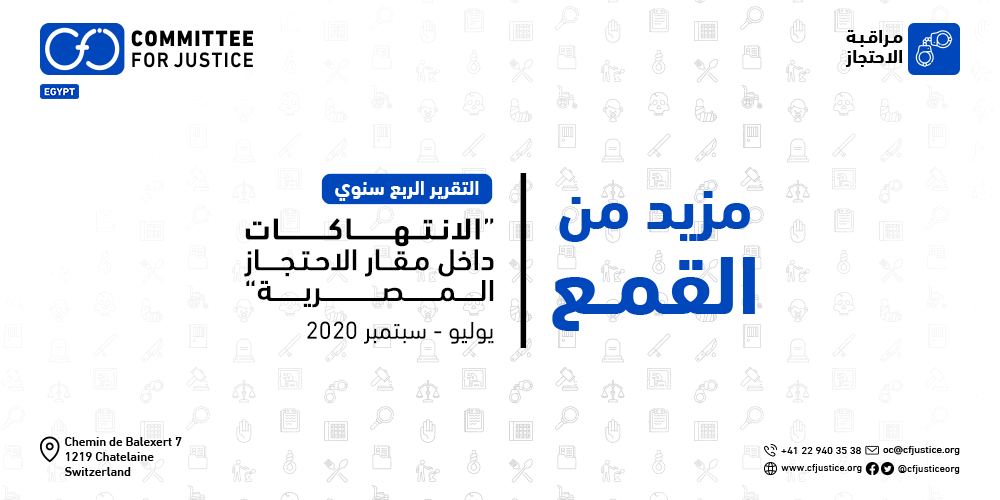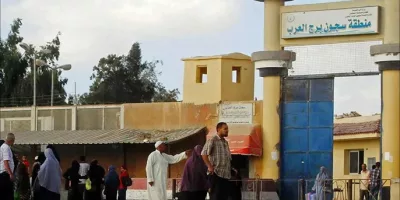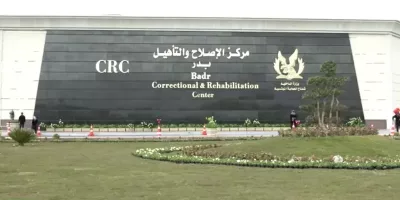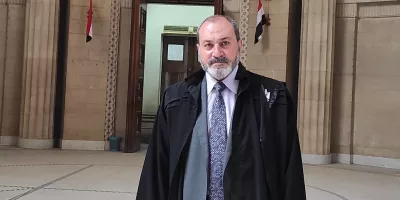Egypt: Further abuse and suppression of freedom of opinion
Report on the human rights situation in Egypt for the period of [July – September 2020]
Press release
Edited by: Committee for Justice
Geneva, November 17, 2020
In a new report monitoring the human rights situation in Egypt during the third quarter of this year (July – September 2020), the Committee for Justice (CFJ) said that Egyptian authorities have doubled down on the abuse of a greater number of citizens belonging to broad social, class and political groups, due to a number of developments in the political arena in Egypt
The report, issued under the title (Egypt: Further abuse and suppression of freedom of opinion), provides an analytical overview of the human rights situation during the third quarter of 2020 in Egypt. Focusing on the consequences of implementing the amended Emergency Law, and the role of the security authorities in suppressing any gesture that may be made by dissenting voices among citizens; during the intensification of practices of repression, corruption and abuse of innocent people.
Commenting on the report, CFJ’s Executive Director Ahmed Mefreh said:
“During the period covered by the report, Egypt witnessed widespread demonstrations. Authorities confronted them with repression, abuse, and widespread arrest campaigns, in which all the human rights of many citizens of all sects and affiliations were violated.”
The report coincided with the activation of the provisions of the Emergency Law due to the coronavirus – COVID-19 pandemic, and the expansion of its specialisations, through which hundreds of thousands of citizens were transferred to exceptional trials (Emergency Supreme State Security Courts). The directives of the Egyptian President, Abdel Fattah El-Sisi, to remove homes and buildings in violation of the law, were also implemented, a measure that led to the removal of more than 36,000 unlicensed buildings from the end of March to early July, which led to an increase in popular opposition.
Waves of online protests have spread with the publication of pictures of thousands of displaced families from their homes, and news of the arrest of many who opposed or expressed opposition to the government and its security authorities demolishing homes without providing an alternative to housing its poor residents.
Commenting on the protests, President El-Sisi’s speech on August 29 included angry threats to the citizens to send army forces to each town and village to unlicensed buildings. His speech also came to compare the residents of the violating buildings to those accused of committing crimes of “terrorism”. That is considered a major expansion in the definition of the policy of “combating terrorism”, and a threat to citizens to choose between homelessness in the open air or death under the rubble of their homes or confinement and trial before the Supreme State Security Courts (Emergency), if they object – in any way – to these measures.
As a result of all these developments, several hashtags have spread on social media in Egypt, calling for the departure of Sisi, amid calls for demonstrations on September 20, which led the authorities to establish security isolation in central Cairo and the surrounding poor suburbs, and intensify campaigns of arrest and random searches of citizens on the roads and to stop pedestrians to check their mobile phones and search for any pictures of demonstrators, in an attempt to deter any existing or potential demonstrations, which reduced the size of the demonstrations.
Despite the above, CFJ has monitored 800 arrests in the wake of the protests in Giza, Alexandria, and some provincial villages, amid expectations that most of them were from the detainees’ homes and had nothing to do with their demonstrations.
Key findings of the report:
- Through this report, CFJ has succeeded in monitoring and documenting 2,652 violations in 61 prisons and detention centers, and has documented 11.8% of them, or 315 violations in 39 places of detention.
Below is a breakdown of the number of documented violations:
-
Enforced disappearance
CFJ documented 557 cases of enforced disappearance, of which it was able to verify 46 cases, equivalent to 8.2 per cent of the total violations under this classification. Violations have peaked in September reaching 394 and 18 incidents on the documentation and verification sides, respectively.
-
Arbitrary deprivation of liberty
CFJ team documented 1,686 violations of arbitrary deprivation of liberty during the reporting period, ranging from 1,580 violations of arbitrary detention to 76 violations of renewed detention and 30 violations of individuals’ arrest (restriction of their freedom of movement and movement). Also, as our team verified 50 violations under the same classification, these were divided between arbitrary detention (49) and renewed detention (1), with violations in September reaching 73% (1235/1686) on the documentation side and 70% (35/50) on the verification side.
-
Torture
We documented 20 torture incidents during the reporting period, spread between 9 incidents of physical torture and 11 incidents of psychological torture. Cases documented in September, only, represent 75 per cent of total documented violations. In the same period, our team has successfully verified 38 cases of torture spread between 4 incidents in July, 8 incidents in August, and 26 incidents in September 2020.
-
Death inside places of detention
CFJ documented 29 deaths in detention centers, ranging from 25 deaths due to deprivation of health care, two deaths as a result of torture, two deaths as a result of poor detention conditions, in addition to one incident of equivocal death by suicide. The highest number of deaths occurred in July (12) compared to 9 and 8 in the following two months, respectively.
-
Poor Detention Conditions
CFJ documented 360 violations of poor detention conditions, ranging from 148 violations of denial of health care, 3 incidents of deportation, and 209 violations of ill-treatment of prisoners and detainees. Also, we verified 48 percent (176/360) of all documented violations, divided between 126 violations of ill-treatment, 4 incidents of deportation, and 46 violations of denial of health care.
– Among the documented violations of ill-treatment, ban/restriction of family visits, denial of access to clean water, food and hygiene materials, and ban/restriction of exercise hours come first with 79, 30 and 31 violations respectively, while overcrowding, uncleanliness, and poor ventilation come first in the verification side with 27, 25 and 24 violations respectively.
– CFJ documented 148 violations of the denial of health care, headed by ‘refusal to undertake medical check-up/screening’ and ‘denial of medication’ by 30% (45/148), followed by ‘refusal to transfer patients to a specialized doctor’ and ‘ban of formal access to medicines’ by 25% for both. Also, we verified 31 per cent (46/148) of total documented violations, with both ‘prevention/stripping of medication’ and ‘conducting medical examinations by unspecialized doctors’ accounting to 50 per cent (23/46) of all verified violations in this category.
- Among the 20 governorates CFJ has documented HR violations during the reporting period, the governorates of Cairo and Sharqiyya topped about 75% of the total recorded violations (1994/2652). As the percentage of violations that occurred in Derb Negm Police Station (Sharqiyya), Tora Prison Complex (Cairo), and Faqqous Police Station (Sharqiyya) have reached about 32% of the total recorded violations.
- We can note that violations against victims whose cases are being heard by the Public Prosecutor’s Office and the Supreme State Security Prosecution account for 75 percent (1994/2652) of all violations documented by CFJ during the reporting period. The violations against victims under “pre-trial detention” accounted for about 79% (2099/2652) of the total documented violations and about 57.7% (182/315) of the total verified violations during the reporting period. Also, by classifying the gender of victims of the observed violations, 96.6% of them were male victims, compared to 3.3% of female victims.
- The monthly breakdown of the data shows that the number of documented and verified violations has increased in September compared to July and August, with 65% (1727/2652) of all documented and 60% (192/315) of all verified violations occurring in September only.
- In terms of age group, of victims whom CFJ was able to identify their age/birth date, documentation data show 246 violations against middle-aged victims (36- 60 years), and 218 violations against young victims (18-35 years), representing 38 per cent (246/640) and 34 per cent (218/640) of total violations that CFJ was able to identify their victims’ age. The verified data also show that the two categories – young and middle-aged victims- were addressed with 147 and 122 violations, respectively.
- By professions and occupations: The observed violations that CFJ was able to determine the professions/jobs of their victims, show that there were a greater number of violations against craftsmen (133 violations) compared to 64 violations of teachers ‘rights, 58 violations of students’ rights, 45 violations of employee rights, etc. Likewise, the documented violations were distributed in more equal patterns among students (10 violations), engineers (8), and employees (7), compared to the concentration of violations against students, journalists, and human rights defenders in previous periods, which highlights the widening circle of those targeted for human rights violations, especially during the reporting period.
These violations have had a number of important consequences for the lives and health of detainees and prisoners in detention facilities. Whereas on August 5, 2020, CFJ received information about 111 confirmed cases of coronavirus (COVID-19), 220 suspected cases, in addition to 17 deaths inside prisons and detention facilities with the virus, specifically in the governorates of Cairo and Al-Sharqiya, which recorded 89 and 129 suspected and confirmed infections by the aforementioned date, according to the Coronavirus Meter recently launched by CFJ to monitor the spread of the virus in detention centres in Egypt.
“We are trying, through this report, to provide a realistic and statistical description of the human rights situation in Egypt during the period covered by the report, not to embarrass the Egyptian authorities, but to show their weaknesses, as the role of civil society is complementary with the authorities, not competitive or hostile. We also tried to explain the measures that we took to try to provide justice to these victims, ” Mefreh added.
Through this report, CFJ attempted to monitor the measures it provided to these victims, the most important of which was the filing of 30 international complaints that dealt with four main types of violations: arbitrary detention, enforced disappearance, denial of health care, and retaliation against victims and their families, 7 of which were accepted.
In addition, CFJ reached tangible results regarding 18 complaints submitted by the organisation, including the identification of the places of disappearance of 11 victims of the forcibly disappeared, and the issuance of UN memoranda of contacts with the Egyptian government or legal opinion regarding the complaints raised by the organisation.
In the conclusion of its report, CFJ called for the need to mobilise international efforts and pressure the Egyptian government to ease the brutal security grip on citizens, as well as to close the files of cases that are heard by the Emergency Supreme State Security Prosecution for the demonstrators against the decision to remove unlicensed buildings throughout Egypt, and work to find fair settlement.
The organisation also called for pressure on Egyptian authorities to limit the practices of abuse and revenge against the Egyptian civil society figures, and to open ways of dialogue and settlement between the state and society on the one hand, and political opponents on the other.
Security Error: PDF files must be hosted on the same domain as this site.
PDF is hosted on: http://https%3A%2F%2Fwww.cfjustice.org%2Fwp-content%2Fuploads%2F2020%2F11%2F%D8%A7%D9%84%D8%B1%D8%A8%D8%B9-%D8%B3%D9%86%D9%88%D9%8A-%D8%A7%D9%86%D8%AC%D9%84%D9%8A%D8%B2%D9%8A-Draft-2020.pdf but this site is: https://www.cfjustice.org






